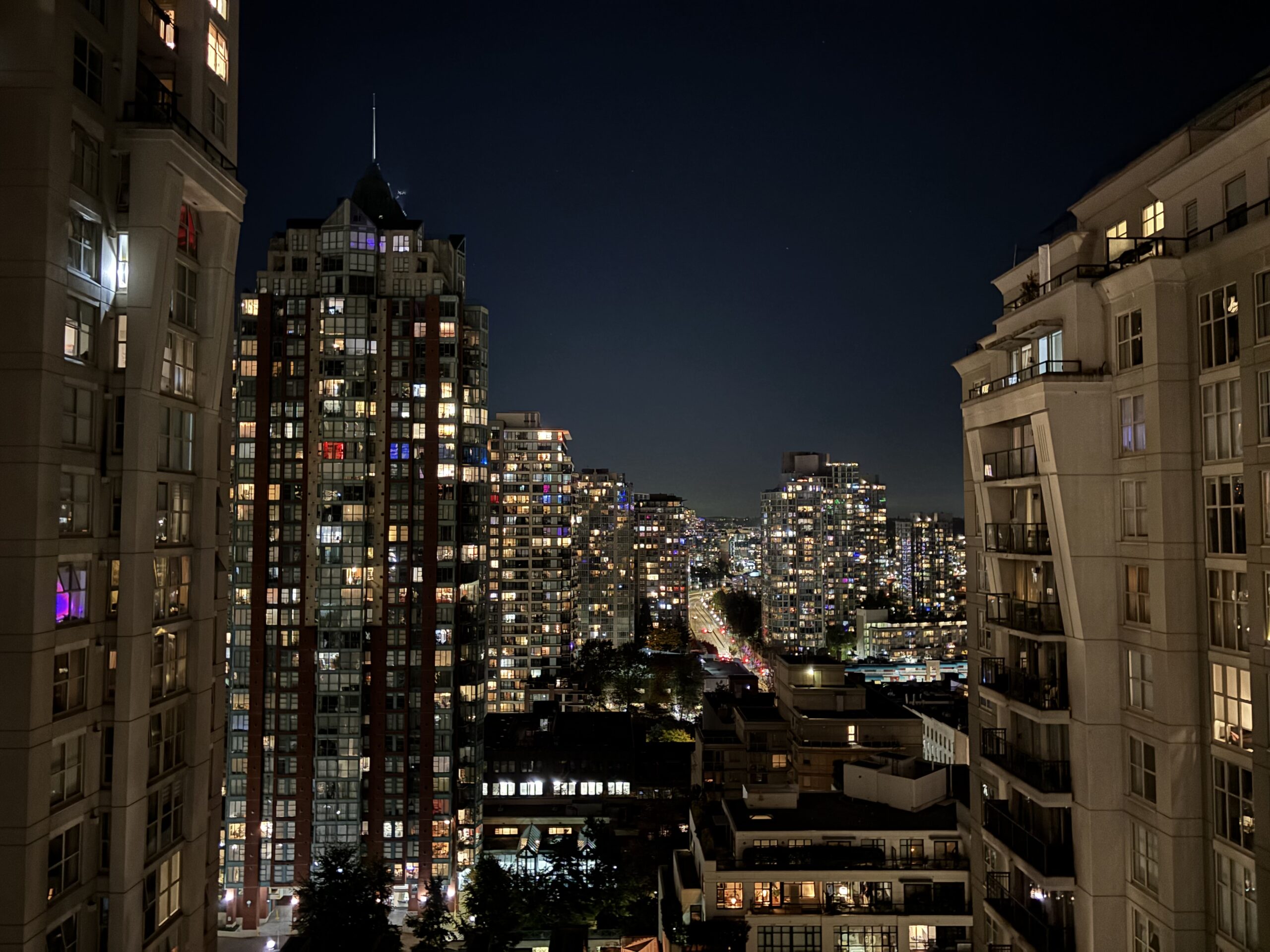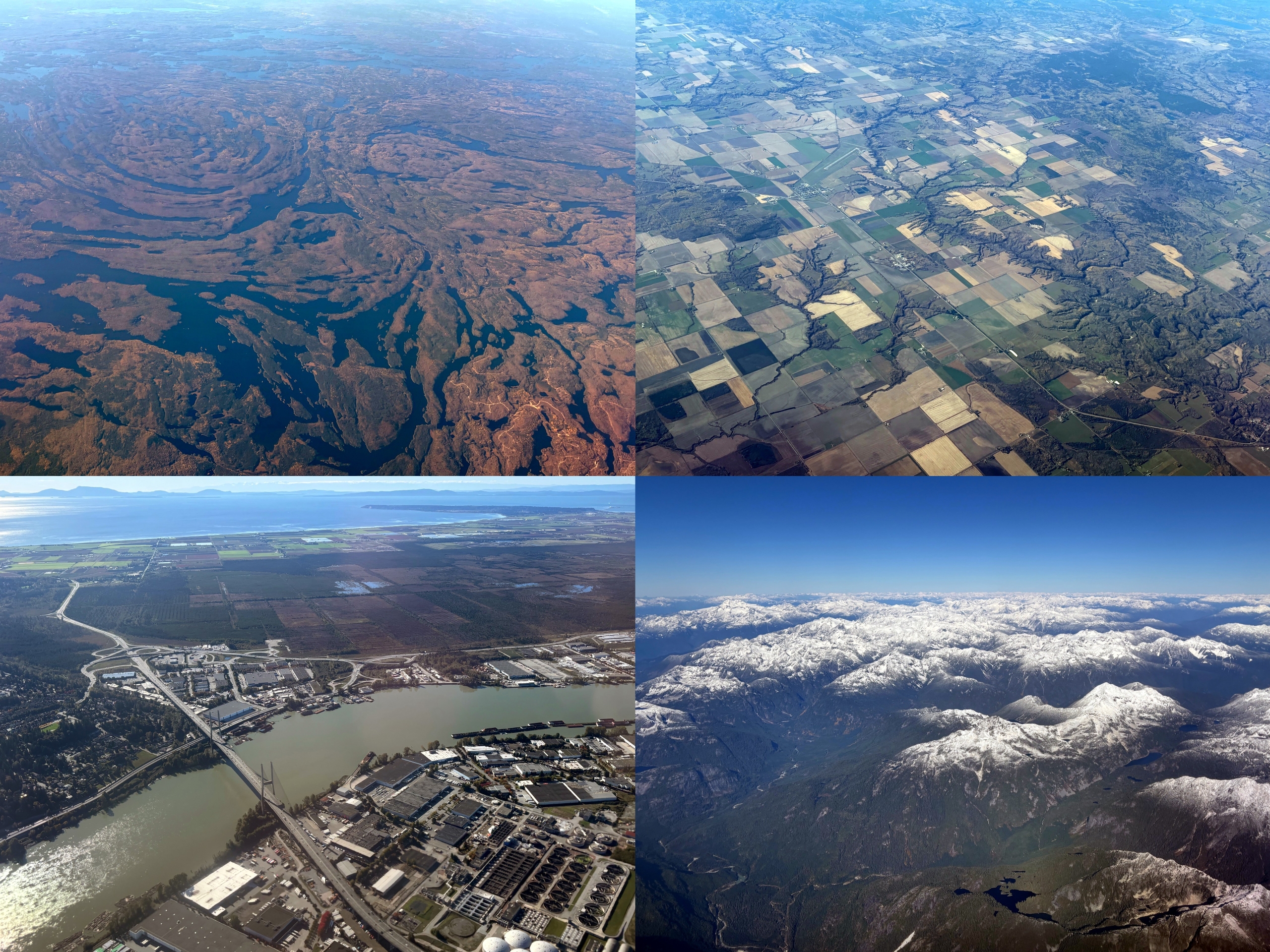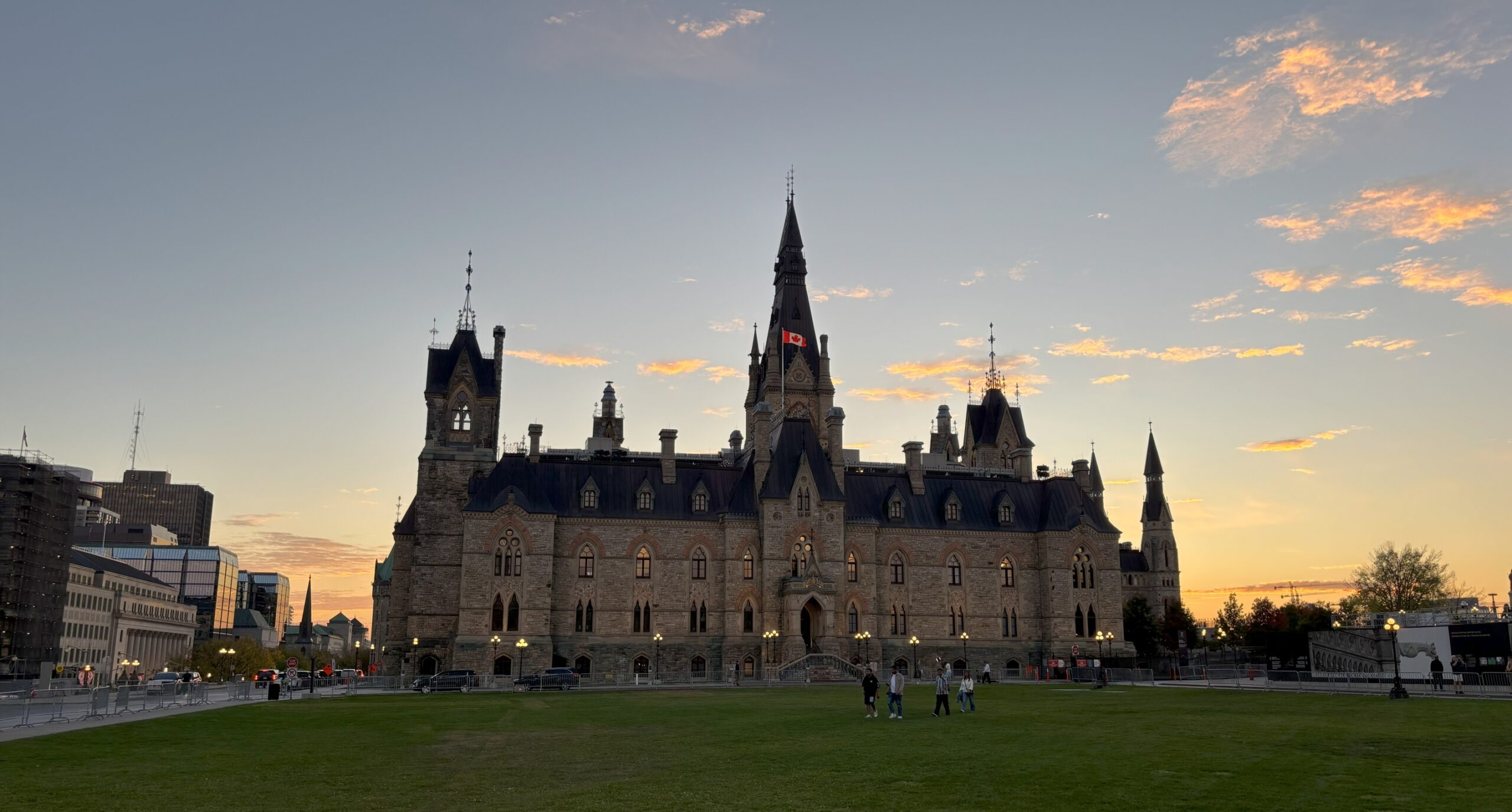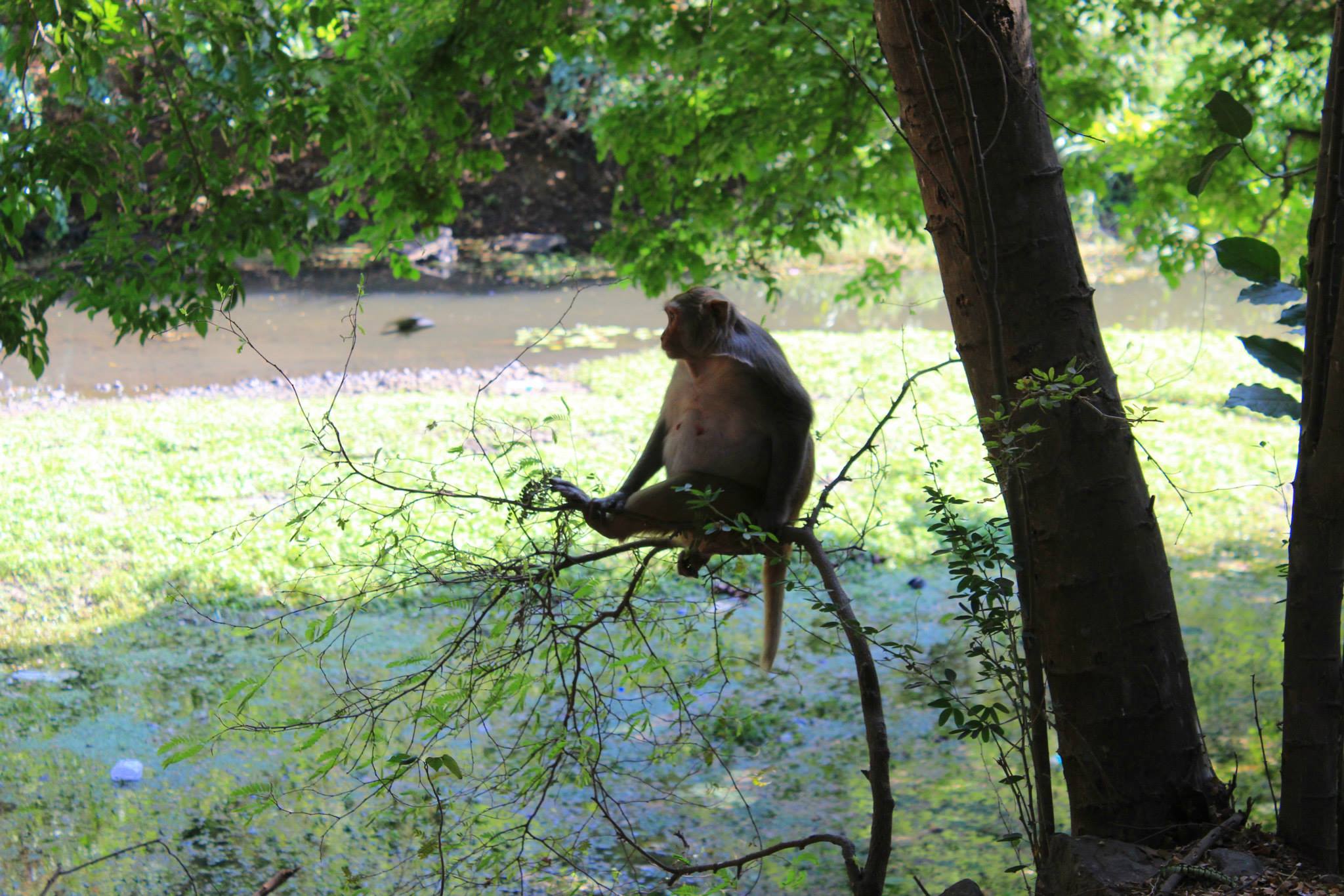-
Stubborn Arachnids
 As you can tell, the travel keeps my vehicle super clean. 08/2025
As you can tell, the travel keeps my vehicle super clean. 08/2025Hitchhikers come in diverse shapes and sizes. This one remained on my rear window from one SkyTrain station to another. I guess we all sometimes prefer being chauffeured to taking transit.
Spiders are remarkably resilient, are they not?
I am going to cheat again on my one-a-week photo mission and share the shot below, of a web in my parents’ garden (taken perhaps a dozen years ago) that we had to remove in order to clean and repaint the fence. Once the work was done, the web was back up in a couple of days. Glistening in the same spot (when viewed at the right angles). The picture does not do its size justice – it was quite a ways from the fence, suspended six feet above the ground and ten feet between the shed and some small trees.
-
Autumnal Shades
Somewhere within the serene Britannia Conservation Area, Ottawa. Sunlit and Sunward. 12/10/2025
-
Night Life
 View from an apartment balcony, downtown Vancouver
View from an apartment balcony, downtown Vancouver -
East to West, Looking Down

Canada, from the skies.
Funnily enough, there was no actual window at my window seat on the way to the nation’s capital. But on the way back, that small ticket promise was kept.
This week’s image(s): clicks from above, taken yesterday. When the clouds cleared and more importantly, when I was awake to take them. (I am not a morning person.)
Clockwise from the top left: the swirling earth of southern Ontario, the fractured fields of rural Saskatchewan, the white-tipped peaks of the Pacific Ranges, and the unusually uncrowded Alex Fraser Bridge.
-
Sunset on Parliament Hill
 The lights are on…someone must be home. West Block, interim base of the House of Commons 06/10/25
The lights are on…someone must be home. West Block, interim base of the House of Commons 06/10/25I trundled about downtown Ottawa yesterday evening. Just had to take advantage of the warm temperatures before it cools off for the week. Somehow, it went up to 31 °C at one point—in October!
The gauge was still at 24 around 7pm as House proceedings adjourned (when this snap was taken). Sunset provides flattering lighting, no?
-
In the Midst of It
From the September newsletter:
The blog has been a bit slim over the past month and that is likely to continue in October. Sides of annoyance have been served up with regular travel, resulting in large amounts of time spent on trivial errands or administration. (The administration of life, that is; readers of The Utopia of Rules will understand.)
Fall also means conference season. As a public sector worker and resident of a conference town, that has entailed lots of engagements.
And on our little corner of the North: Prince George has had a rough time of it in September. It has lost two structures – a popular downtown brewery and hangout hotspot, plus a recycling depot at the edge of city center. While the full nature behind both events continues to be under investigation, some of the populace here has been quick to judgment. Emotions are volatile and reactions easy to heighten in the age of social media, at least that is this humble observer’s view from the outside.
-
Topsy-turvy
 Things feel a little bit upside-down at the moment. San Francisco, 2015
Things feel a little bit upside-down at the moment. San Francisco, 2015 -
Macaque in Mumbai
 Life is a balancing act. A macaque in meditation, Sanjay Gandhi National Park, Mumbai. May 2014
Life is a balancing act. A macaque in meditation, Sanjay Gandhi National Park, Mumbai. May 2014 -
Masters, Danish Pop, & Silliness
One of the primary ways that I discover new music is through television shows and movies. Largely instrumental tracks from scores that are sprinkled throughout the playlist.
On this point, I recently noticed how I had an unexpected number of tunes created by Dru Masters saved in the collection. A composer I was introduced to via one of my favorite panel shows: Taskmaster. I guess I ended up searching around for more of his themes.
Even in its twentieth series, Taskmaster is still somehow concocting hilarious battlefields for its competitors. If you are unfamiliar with the show, let me drag you out from underneath the rock: a good introduction is simply watching clips of individual tasks (conveniently found on an official playlist) to test your comfort within its comedic waters. Tasks like “Film something that will look impressive in reverse” (S1E2), “Camouflage yourself” (S4E3) or “Physically recreate a video game” (S7E10).
The official channel uploads full episodes as they air and has the full archive, along with a lot of other goodies (including some seasons of its international spin-offs) for consumption.
In general, the tasks have evolved to become more complex over time, but it is heartening to see that Alex Horne is still finding simpler vectors for engineering humor (like, say, walking blindfolded on a spot while following basic instructions; @41:37 of the episode).
-
Running to No End
 Graffiti seen during a late-night ride on Vancouver transit.
Graffiti seen during a late-night ride on Vancouver transit.A question I often ask.
A sentiment less expressed.
A disposition that too few share.
Impossible to run the rat race at a snail’s pace.